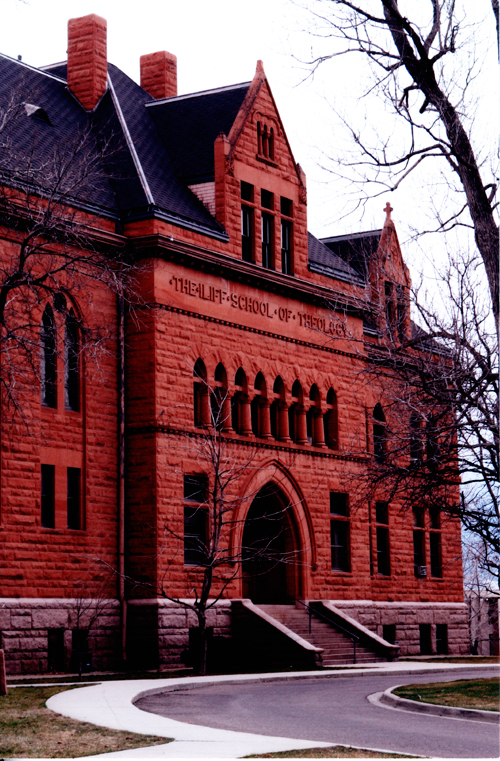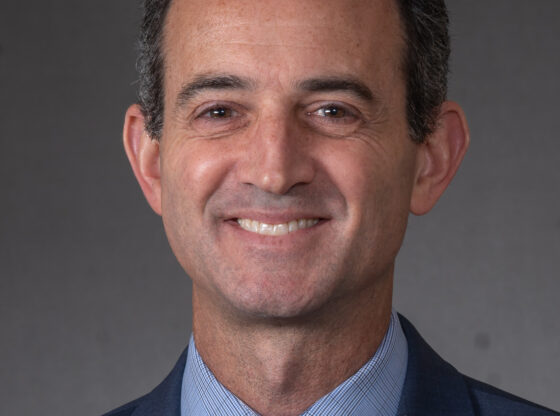DU started its sesquicentennial speaker series this past Wednesday with the subject of “What Does It Mean to be the ‘Colorado Seminary’? DU’s Historical Connections to the Methodist Church.”
The panel featured three speakers: Reverend Paul Kottke, Senior pastor at University Park Methodist Church; Reverend and Dr. Thomas Wolfe, president of Iliff School of Theology; and Professor Will Gravely of the Religious Studies program at DU. There were 26 people in attendance and it was mainly relatives and friends of the panelists in the audience, a few religious studies students came to introduce each speaker.
The presentation is part of what will be a biweekly series focusing on the history of DU and its connections to DU and the state of Colorado.
The symposium began with Gravely who discussed the beginnings of the Methodist faith and the principles of DU founder John Evans, and how they impacted the beginnings of the university. There is no religious requirement for any student or member of the faculty or staff due to Evans’ belief in religious equality. When drafting the original charter for the school, Evans and his trustees made sure to state that “No test of religious faith shall ever be applied as a condition of admission”.
Before Evans was a Methodist, he was a Quaker, so he always had strong principles regarding the ideas of religious freedom. According to Gravely, “Evans had respect for all opinions and never denounced any young mind”.
Evans converted due to the focus on education the Methodist faith has. Gravely touched on the fact that the Methodist connection to the university has shrunk considerably since 1864. At one point in the university’s history, students were required to go to chapel five days a week, over time that shrunk to the current requirement of zero. Other universities that were founded by Methodists and have gradually shrunk their connection include Duke, Emory, Northwestern, SMU, Wesleyan and USC.
Wolfe, who joined the university last year, began his speech with the history of the Iliff School of Theology. It is one of only thirteen Methodist-faith based schools of theology in the U.S. and one of only two in the west, the other being Claremont College in Calif. Iliff was originally founded by Bishop Henry Warren, and his wife, Elizabeth Iliff Warren as a part of DU in 1892, but the school closed its doors in 1900 due to lack of funds. In 1903, it reopened as a private institution separate from DU. Wolfe also discussed The University Senate of Methodists, which decides what schools are worthy of being affiliated with the religion.
Originally there were 152 colleges/universities founded by Methodists, but now there are only 120 that still retain their affiliation.
Kottke ended the panel with his discussion on the history of Colorado and its ties to DU. He discussed in the population movement into Colorado due to the gold rush. The first gold nugget was found in March, 1859 in Dry Creek, Colo. and by May over 100,00 people came to find their fortune.
Because of this, Kottke proclaimed that the “Colorado mountains that were once a barrier became literal gold.”
Kottke also discussed the poor treatment of Native Americans and the fallout of the Sand Creek Massacre, which happened the same year DU was founded and led to Evans resigning as governor. Methodists came out in support of Evans and the massacre and justified it by thinking “It is impossible to teach an Indian without putting him in captivity”.
Kottke described this as an “incredibly sad and difficult time in Colorado’s history”.
After the three panelists talked for over 90 minutes, the floor was opened to questions. During this question and answer session, Wolfe came out in support for gay marriage and said that he and most of his colleagues believe that marriage should be about the integrity of love and not the gender.
A few other important aspects of the Methodist-education relationship were touched upon. Wolfe said that because academic freedom is an institution of the church, it has always been easy to combine the two. Because connection to society as a whole is more important to the religion instead of growth, said Wolfe, it has been easier for non-religious academics to accept Methodists into their culture.











